The One Minority Society Loves to Hate
In Europe, Jews are once again behind bars. Not in concentration camps—yet. But whenever they gather in synagogues, Jewish schools or other cultural centers, they are doing so behind walls, fences, gates and guards. In Paris’s main Jewish district, French soldiers patrol the streets.
Synagogues in Europe’s big cities spend about a quarter of their budgets on security. In some places, it’s as high as 50 percent. In May, German Chancellor Angela Merkel warned that every synagogue and Jewish school in Germany requires constant police protection.
Meanwhile, the deadliest anti-Semitic attack in recent United States history occurred in October 2018 when a gunman killed 11 at a synagogue in Pittsburgh. Last June, Elan Carr, U.S. special envoy for monitoring and combating anti-Semitism, told a conference in Jerusalem, “We live in a time of danger. Any synagogue, every jcc [Jewish Community Center], should have guards.”
In Paris last year, a Holocaust survivor was murdered in her own apartment in an anti-Semitic attack. Almost exactly a year before, a Jewish widow was murdered in the same neighborhood under similar circumstances. In 2015, four were killed in an attack on a kosher supermarket. Forty percent of all violent hate crimes in France are anti-Semitic despite Jews being less than 1 percent of the population.
For every murder, there are thousands more death threats, attacks on Jewish buildings, and other anti-Semitic crimes. Jewish parents receive phone calls threatening to murder their children. Jewish drivers find notes on their parked cars, saying they’re being watched. Jewish pedestrians walk by graffiti saying that Hitler had the right idea.
The statistics are all heading in the wrong direction. In France, anti-Semitic acts were up 74 percent in 2018 compared to 2017. In the U.S., they doubled. In Germany they rose 20 percent, with violent attacks up 60 percent. The United Kingdom has set new records for the largest number of anti-Semitic incidents in each of the last three years.
The unique thing about this spike is that there is no immediate cause. Previous surges in anti-Semitic violence in the West have occurred in tandem with major events in the Middle East surrounding the Jewish nation of Israel: the Second Intifada or a war in Gaza, for example. In recent years, there has been no trigger. Soaring anti-Semitism is just the new normal.
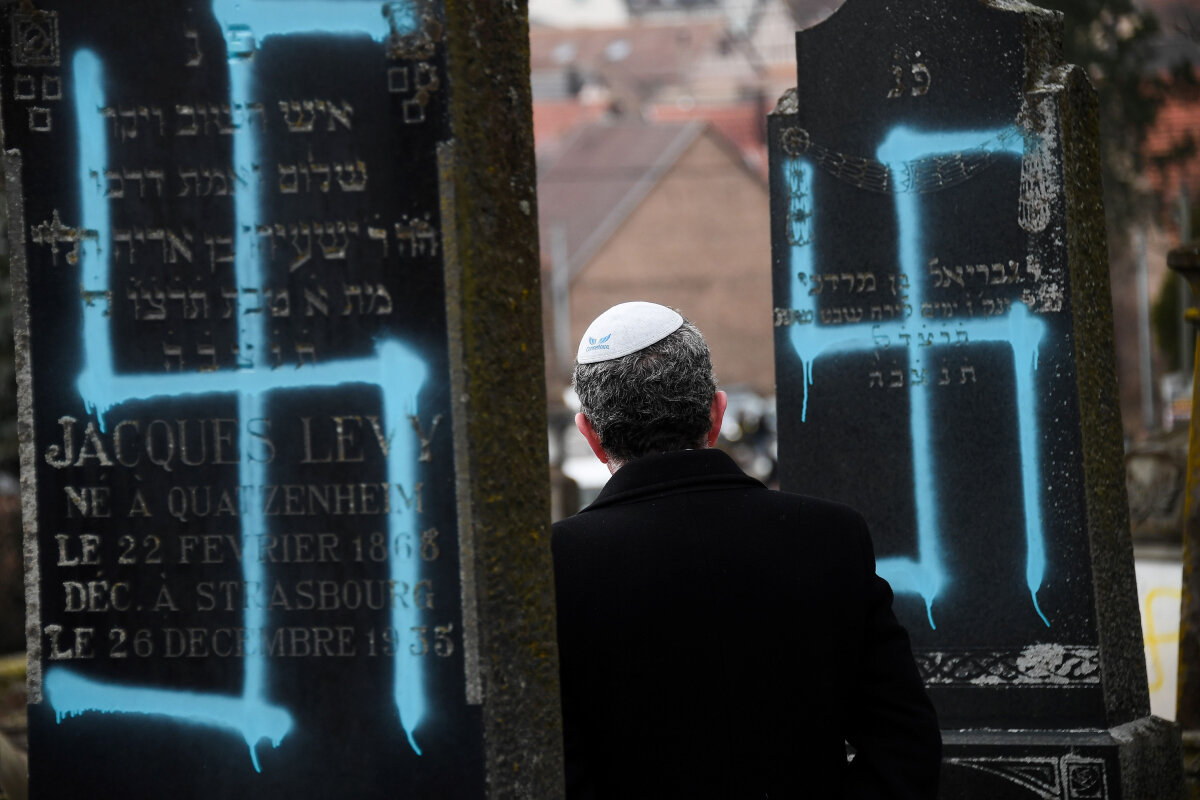
“It is now clear that anti-Semitism is no longer limited to the far left, far right and radical Islamists’ triangle—it has become mainstream and often accepted by civil society,” said Moshe Kantor, president of the European Jewish Congress.
The problem is getting so bad that Jews fear to show themselves publicly. Germany’s anti-Semitism commissioner, Felix Klein, said Jews should avoid wearing their kippahs in some areas to avoid attack. In the Netherlands, nearly half of Jews say they are afraid to identify as Jews in public.
A Problem in Politics
This anti-Semitism is not being committed by European governments yet. But across Europe, political parties with anti-Semitic links are gaining power.
In a democracy, growing anti-Semitism in the populace is going to be reflected in its political parties. In some regions of Germany, the Alternative für Deutschland is the most popular party. One of the party’s state leaders has strongly criticized Germany for building Holocaust memorials, and has said that the nation should be proud of the accomplishments of its soldiers in World War ii. In Hungary, Jobbik, the country’s second-most popular party, has routinely engaged in anti-Semitism. In 2012, one of its members of parliament called for the government to draw up a list of all Jews in the nation, since they were a “national security risk.” In 2013, the party chairman said their country “was not for sale” to Jews. (As Jobbik has gained in popularity, it has tried to tone down its anti-Semitism.)
Across Hungary, 24 percent say they want Jews to leave the country, up from 12 percent in 2006. Thirty percent want restrictions on the number of Jews who can work certain jobs.
Austria’s Freedom Party was, until recently, part of the government. The party was founded by two former members of the Waffen SS. In France, members of the yellow vest movement, which organized weeks of mass protests across the nation, show worrying signs of anti-Semitism. Forty-four percent of them said they believe there is a “global Zionist plot” for Jews to rule the world.
Even in the UK, the Labour Party is facing a statutory investigation to determine if it is institutionally anti-Semitic. In July, the bbc’s Panorama program asked, “Is Labour Anti-Semitic?” The hour-long exposé showed Jewish Labour members describing the barrage of persecution they have received since Jeremy Corbyn became party leader in 2015—as well as the way party leadership has protected anti-Semitism.
As anti-Semitism rises, memories are fading of what has happened historically when Jew-hatred has surged. A cnn poll published in November surveyed more than 7,000 people in mainland Europe and Britain. More than one third (34 percent) know little to nothing about the violence against Jews in the World War ii era. About 5 percent have never even heard of the Holocaust. In France, that figure is 20 percent among 18-to-34-year-olds.
For those familiar with the history of the Holocaust, about 32 percent say the Jews use the memory of it “to advance their own positions or goals.” Almost 20 percent of Europeans say they believe that anti-Semitism is a justifiable reaction to Jewish behavior; about 28 percent say it is in response to the nation of Israel itself. No wonder that in Austria, 58 percent say they believe that something like the Holocaust could happen again. These are deeply alarming figures.
Jews Fearful
Jews, naturally, are worried. A survey conducted by the European Union Agency for Fundamental Rights and published in December 2018 found that, for the majority of Jews in Europe, anti-Semitism threatens their way of life. The poll found that 89 percent say anti-Semitism has increased significantly over the last five years. Thirty-eight percent say they are thinking of leaving because they no longer feel safe. Property prices in Israel are soaring—in part because European Jews are preparing to move.
France doesn’t keep regular statistics on the number of Jews emigrating. But figures from 2015 show that 8,000 left for Israel. With large numbers also leaving for the U.S. or Quebec in Canada, the number of Jews in France is falling by about 1 percent each year. The former president of the Jewish Agency for Israel, Natan Sharansky, warned that there is “no future for Jews in France.” Dov Maimon, a senior fellow at the Jewish People Policy Institute, who studies migration, said in 2015 he expected 250,000 Jews to move to Israel by 2030. There are currently only an estimated 550,000 Jews in France.
One parent told Deutsche Welle how much safer he feels after moving to Ashdod in Israel. “I can let the children play outside in the evenings and go to school by themselves,” he said. “In France, I was afraid to let the children take public transportation, because there were cases of their friends being attacked on the Metro.”
This rising tide also manifests itself on the international stage. Between 2009 and September 2018, the United Nations Educational, Scientific and Cultural Organization passed 71 resolutions condemning Israel, and merely two resolutions against all other nations in the world combined. In 2018, the UN General Assembly passed 21 resolutions on Israel, and just six on all other countries. The UN Human Rights Council has passed more resolutions against Israel than against all other nations in the world combined. The UN has passed more than 700 resolutions condemning Israel, and zero condemning the terrorist group Hamas.
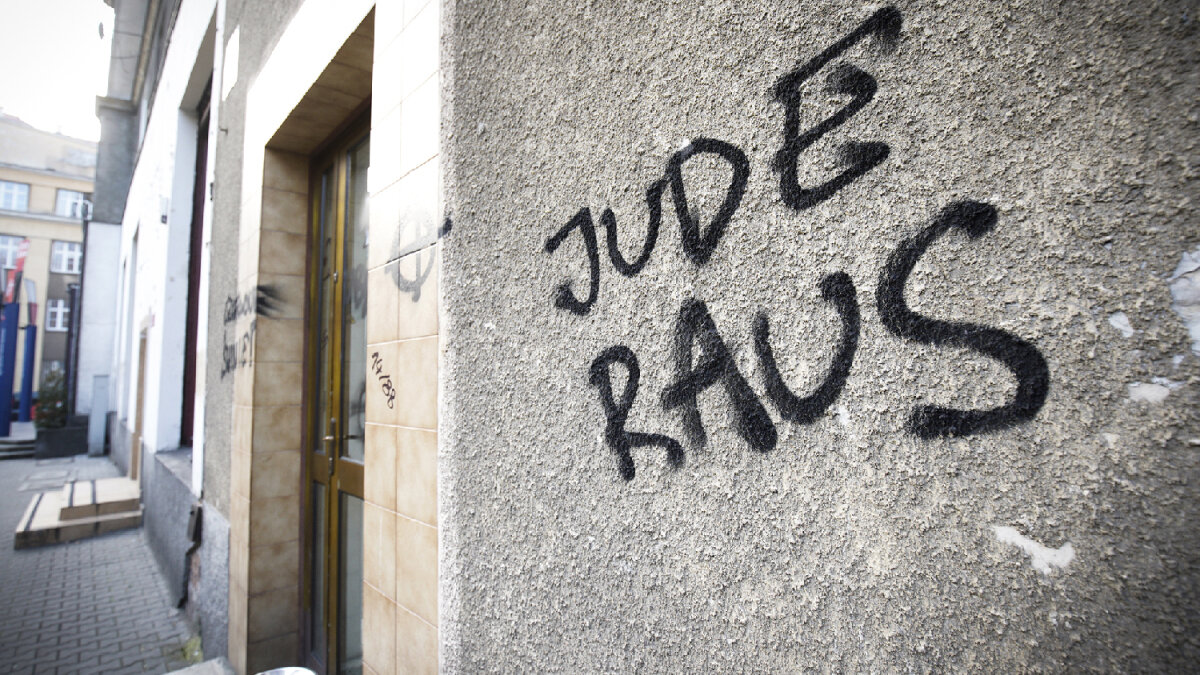
Criticism of Israel is not inherently anti-Semitic—but such obsession is. There is no evidence to suggest that Israel is the most problematic country on the planet, demanding the overwhelming attention of the United Nations. The Jewish state is being singled out because it is Jewish. That is textbook anti-Semitism.
You may think resentment toward Jews is not a major problem. It makes them uncomfortable, but after all, no one is building gas chambers.
But what did the world look like before they built the gas chambers? It looked a lot like it does today. Prior to the Holocaust, it was not only acceptable but fashionable to despise Jews.
A History of Evil
“The martyrdom of Jews in the 1940s would strip anti-Semitism [in Britain] of its respectability,” wrote William Manchester in The Last Lion, “but in the 1930s, it was a quite ordinary thing to see restaurants, hotels, clubs, beaches and residential neighborhoods barred to people with what were delicately called ‘dietary requirements.’ … Contempt for [Jews] was not considered bad form. They were widely regarded as unlovable, alien, loud-mouthed, ‘flashy’ people who enriched themselves at the expense of Gentiles.”
“Ladies wore bracelets with swastika charms; young men combed their hair slant across their foreheads,” he wrote. Even former King of England Edward viii visited Hitler in Germany, said he admired the führer, and did not lift a finger to curb the blatant acts of anti-Semitism surging in the government and across the country.
“Poland’s national character, like Germany’s, was marred by a livid streak of anti-Semitism,” wrote Manchester. In Hungary, anti-Semitic laws similar to those in Nazi Germany made persecution of Jews routine. In France in the late 1930s, rowdy crowds, alarmed by the prospect of war with Germany and convinced that Jewish warmongers were the root of the problem, protested in towns and suburbs, crying, “Death to the Jews. Raid the Jews.”
In Germany, persecution of Jews was adopted as government policy nearly a decade before the war began. The 1935 Nuremberg Laws and other legislation institutionalized anti-Semitism and provided the Hitler regime legal cover to begin harassing and oppressing German Jews. These laws led to Kristallnacht—“the night of broken glass”—a terrifying pogrom against Jews carried out in November 1938 by Hitler’s paramilitary forces and German citizens.
Hatred of Jews was also common in America. “The worst period of American anti-Semitism,” wrote history Prof. Leonard Dinnerstein, “was sandwiched between the ends of World War i and World War ii” (Anti-Semitism in Times of Crisis). He wrote that by the mid-1940s, animosity had swelled to the point where many American Jews feared that the pogroms occurring in Nazi Germany would spread to America.
This history shows why it is not only Jews who should fear the direction we are heading.
Throughout history, rising anti-Semitism has been a symptom of a society in crisis. The Guardian’s Jonathan Freedland wrote, “Jews have often functioned as a canary in the coal mine: When a society turns on its Jews, it is usually a sign of wider ill health” (March 30, 2018). It is no coincidence that the world’s worst-ever attack on Jews, numbers-wise, took place at the same time as the world’s most destructive war.
As Russian society fell apart in the late 19th century, waves of pogroms swept through the empire. In the 1880s, Jews were attacked in Kiev, Warsaw and Odessa. Between 1903 and 1906, thousands of Jews died in a series of attacks that ran alongside the turmoil surrounding the 1905 Russian Revolution. These pogroms were a symptom of a terminally sick society, one that finally destroyed itself in 1917.
Around that time, some in France blamed the Jews for defeat in the Franco-Prussian War (1870–1871). This sparked a rise in anti-Semitism that led to the infamous Dreyfus Affair and a steady undercurrent of French Jew-hatred.
For 2,000 years of European history, Jews have been persecuted in good times and bad. But a pattern has emerged: In periods of major social tension and upheaval, Jews become the scapegoat. When the Black Death killed tens of millions in the 1300s, people blamed the Jews: Hundreds of Jewish communities were attacked; about 1,000 Jews were burned alive in Strasbourg.
Whenever Europe got involved with the Middle East, attacks on the Jews also spiked. When Medieval Europe suffered setbacks, Jews were blamed. During the First Crusade in 1096, Jewish communities in central Europe were wiped out in a separate German Crusade. Around 12,000 are estimated to have been killed in cities around the Rhineland. When King Richard i of England left to fight in the Middle East, anti-Jewish riots broke out across the country. As Pope Innocent iii greatly expanded the Crusades, he also persecuted Europe’s Jews. His forcing of Jews to wear a special badge, and other persecutions, are widely seen as a turning point that intensified persecution against European Jews. As the example of Pope Innocent shows, such persecution was also usually strongest whenever the Catholic Church was strongest.
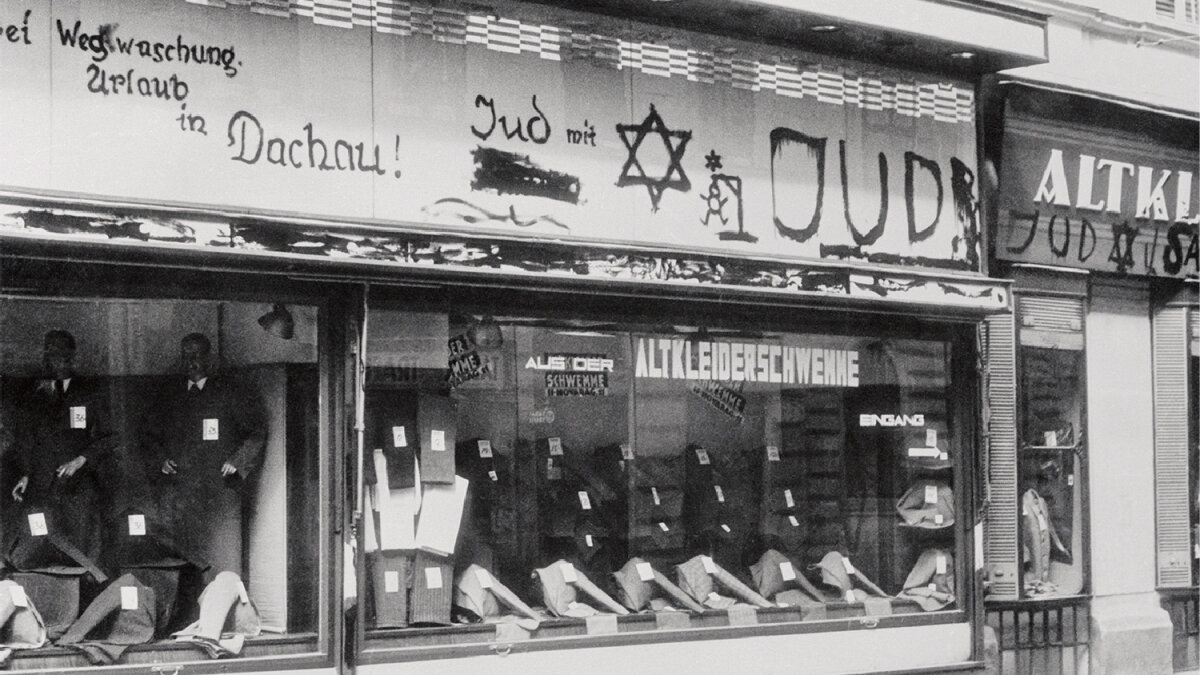
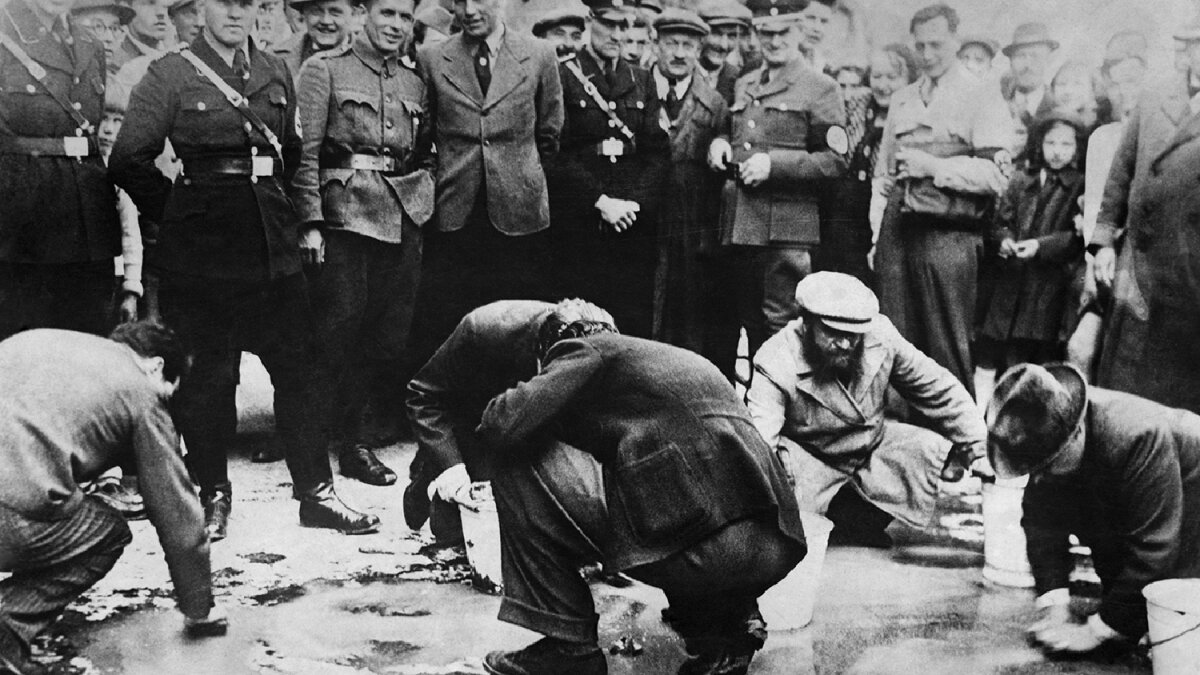
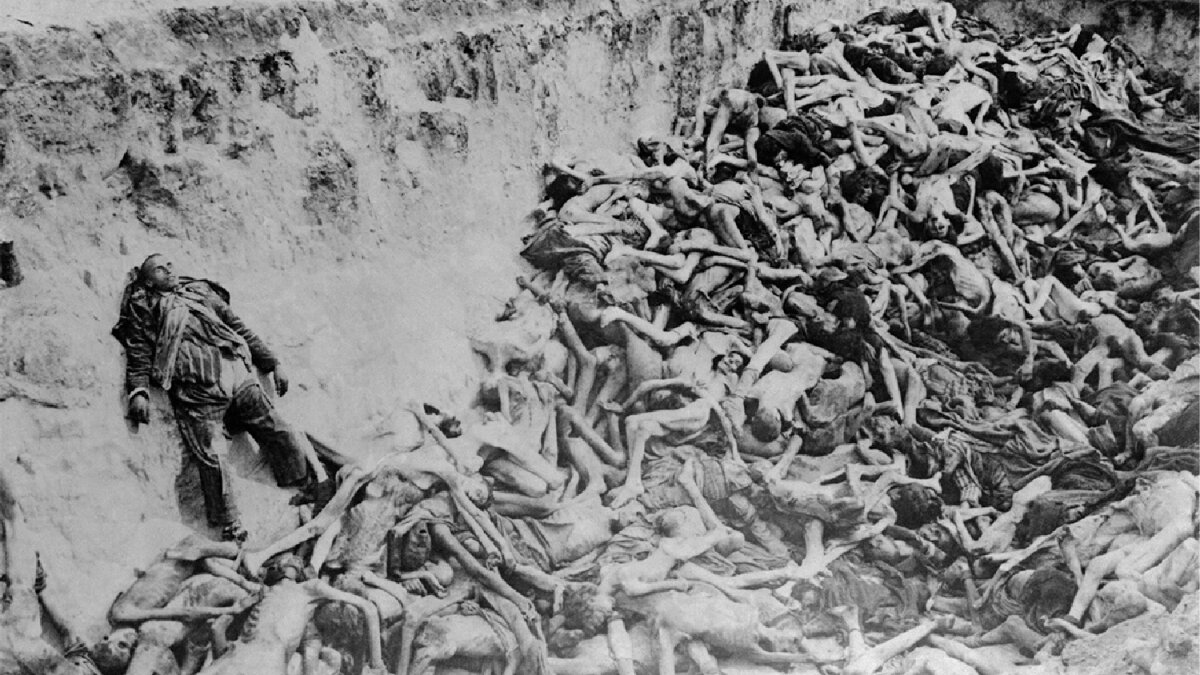
British journalist Melanie Phillips noted that today’s “resurgence of these anti-Semitic tropes suggests a terrifying mass loss of reason. … When societies and individuals find their identity fragmenting, they turn on the Jewish people as the scapegoat onto which they project their own murderous feelings” (February 15). Global anti-Semitism is a symptom of global societal unrest.
But even this analysis fails to identify the real reason for concern.
If anti-Semitism is indeed the “canary in the coal mine,” we face a deadly poison of global proportions. To understand why, we must understand the unseen fountainhead of this hatred.
The Source of Anti-Semitism
The Bible is clear that God the Father has a plan for mankind, and that the Jews have a unique role in this plan. Most of the Old Testament is a history of the Jews and the other tribes of Israel. Even the New Testament has a lot to say about Jews, as we shall see.
The Bible also reveals that there is a devil who hates God and relentlessly seeks to destroy His plan (John 8:44; 2 Corinthians 4:4; Revelation 12). It is not fashionable to talk about him today. But it’s impossible to believe what the Bible says and fail to recognize the devil’s existence. Ephesians 2:2 says the devil influences people’s moods, feelings and emotions. He is the ultimate author of jealousy, anger and hatred.
“Satan can stir up vicious hatred,” Trumpet editor in chief Gerald Flurry writes in his book The Key of David. “He loves to use out-of-control emotions. A religion taken to the extreme—such as radical Islam—gives him a great field to work in. Nazi Germany exhibited fanatical hatred for the Jews. The Nazis also used emotion to stir up a repugnant hatred. The coming beast power [a political-religious empire prophesied to arise in this end time] will exhibit the same hatred for the Jews as well.
“Most people who hate the Jews don’t even know why they do. Can we see Satan behind such lies and hatred?”
Satan has a special hatred for Jews. He is the ultimate source of anti-Semitism.
Why this special hatred? Because of the Jews’ special role in God’s plan.
“Satan the devil understands the plan of God,” writes Mr. Flurry. “He has a great hatred for God. Because of the plan of God, the word Jew can really stir up Satan’s wrath. … Hatred for the Jews has been inspired by Satan” (ibid).
This is why anti-Semitism, and it is also why anti-Semitism is such an effective barometer of crisis. Its rise shows that Satan is really influencing minds.
Now, just what is the Jews’ special role?
‘Salvation Is of the Jews’
The Jews descend from Judah, just one of the 12 tribes of Israel. The Bible makes clear God has a role for all these tribes—and Satan hates all these tribes. But there is still something unique in God’s plan for Judah.
In Genesis, God made a great twofold promise to Abraham after the patriarch demonstrated his obedience. This included the promise of grace: “[I]n thy seed shall all the nations of the earth be blessed” (Genesis 22:18). Here, as part of His plan to offer salvation to all mankind, was God’s guarantee of a Messiah who would come as a descendant of Abraham.
Genesis 49:10 shows that this promise was passed on to Judah: “The sceptre shall not depart from Judah, nor a lawgiver from between his feet, until Shiloh come; and unto him shall the gathering of the people be.” This promise said the Messiah would be born to a Jewish woman! This is why Jesus said, “[S]alvation is of the Jews” (John 4:22). What an honor for the Jews to play this part in the Father’s plan.
God loves all people, His plan includes all people, and He will offer salvation to all people. But the Jews play a unique role in this plan. “God directly involved the Jews in His plan,” Mr. Flurry writes. “From these facts we must assume that God the Father and Jesus Christ have a close connection to the Jewish race—but only to further their spiritual plan” (ibid).
Satan hates anyone with a “close connection” with God the Father.
This promise is closely connected to another reason Satan hates the Jews. The Apostle Paul wrote that unto the Jews “were committed the oracles of God,” or God’s “divine utterances” (Romans 3:2). God has preserved the seventh-day Sabbath, His calendar and many writings and revelation through Jews. This does not make Jews more righteous; in fact, they are under the same spiritual deception that everyone else in “the whole world” is (Revelation 12:9). Still, God used Jews to preserve these oracles.
Satan hates these “divine utterances,” and has a special hatred for the people through whom they were preserved.
Thus when the Messiah was born, He entered a culture that, though disobedient to God in many ways, was familiar with the scriptures that prophesied of Him and still kept the holy days and Sabbath that point to God’s plan of salvation.
But Genesis 49 isn’t just a prophecy that the Messiah would be born a Jew. This prophecy also says that Jesus, under the authority of God the Father, would be King and Ruler over God’s Family. Isaiah 9 says Jesus will sit on a literal throne and rule His Kingdom. 2 Samuel 7 shows that this throne began with King David, who came from the tribe of Judah. Luke 1:31-33 say that Jesus Christ would be born into this kingly Jewish line and that God “shall give unto him the throne of his father David.”
Jesus Christ will rule from the throne of David, which was established with King David and continues all the way to the return of Jesus Christ. “Satan hates David’s throne more than any throne on this Earth because it is about to replace his throne forever!” writes Mr. Flurry in his book The New Throne of David. To understand the throne of David, and the Jews’ special connection to it, request our free books The United States and Britain in Prophecy and The New Throne of David.
Before we conclude, there is one more important dimension to the cause of anti-Semitism.
Spiritual Jews
God wants to save all mankind (e.g. 1 Timothy 2:3-4). Repeatedly in the Bible, salvation is expressed in family terms. Scripture says that when God begets us with His Holy Spirit, we become His sons (Romans 8:14; 1 John 3:1-2). We are considered brothers of Jesus Christ (Romans 8:29; Hebrews 2:11). The Church is to become Christ’s wife (Ephesians 5:31-32; 2 Corinthians 11:2; Revelation 19:7-9). The God Family, currently composed of Father and Son, is going to expand dramatically at Christ’s return when the saints are glorified (1 Thessalonians 4:16-17; 1 Corinthians 15:49-53). And there are yet more phases to this plan that will enlarge the family yet further! (e.g. Ezekiel 37:11-14).
God’s plan is a family plan!
To be in this Family, we must take on the character and characteristics of God the Father and Jesus Christ, “the Lion of the tribe of Juda” (Revelation 5:5). And many scriptures express this in a specific, particular way. Salvation means joining the Family of “the Lion of the tribe of Juda,” which means all who will be saved must become “spiritual Jews.”
Romans 2:28-29 tell us this directly. Paul says that for spiritual salvation, your race doesn’t matter. But you must become “a Jew … inwardly … in the spirit and not in the letter.” How does one become a spiritual Jew? By becoming spiritually circumcised, which means repentance and conversion—cutting away the foreskin of your heart (Deuteronomy 10:16; Jeremiah 4:4). To receive the promises made to Abraham, one must become spiritually a son of Abraham (Romans 4:12-17)—specifically, a spiritual Jew. In Revelation 3:9, Christ condemns those “which say they are Jews, and are not, but do lie.” This passage is not about physical Jews, but about God’s true Church, which is comprised of spiritual Jews.
Some of God’s characteristics are reflected, in a physical way, in the Jews. Like them, we must hang on to and preserve God’s truth. We must fight like a lion for it (Genesis 49:8-9). We must follow Christ, the Lion of the tribe of Judah, and live as He lived (1 Peter 2:21). We take on the characteristics of the God Family by letting God’s mind in us (Philippians 2:5). “Christ’s mind will be extended to the whole world after His return,” writes Mr. Flurry in The Key of David. “That is how the world will be united. All people who turn to God will become spiritual Jews. What fantastic unity!”
God’s plan involves inviting all humanity to become spiritual Jews, under Jesus Christ—a God Being born on Earth as a Jew and a descendant of David—and to keep the law preserved by the Jews.
“David, a Jewish king, used his throne to unite all of Israel,” writes Mr. Flurry. “Jesus Christ, the spiritual Jew, will take David’s throne and unite the whole world! Christ will accomplish this unity by grafting all of the Gentile nations into Israel. … Christ’s Church is not just for natural-born Israelites, it is for all people whom God calls—no matter what nationality or race. All members of God’s Church are citizens of spiritual Israel. What is happening in the Church today is a type of what will happen globally in the World Tomorrow. … The Jews are a type of what all men are to become spiritually” (ibid).
This gets to the heart of Satan’s hatred for physical Jews. Within that race is a vision of God working with all people and inviting all into His Family. Satan passionately hates that plan!
The rise in anti-Semitism is a disturbing and upsetting subject, especially when you understand that the Bible says it will grow much worse. But when you understand the cause, there is an inspiring truth.
Revelation 12:9 tells us that shortly before Christ’s return Satan is at his worst wrath ever. He is about to whip anti-Semitism up to its worst point ever. But that same verse tells us that Satan has only a short time left to do so. Growing Jew-hatred is a satanic backlash against the truth of God, and the efforts of a loving Father to bring all mankind into His Family. Thankfully, though, it will prove to be a violent, vicious but ultimately vain effort to thwart the inevitable plan of God.
